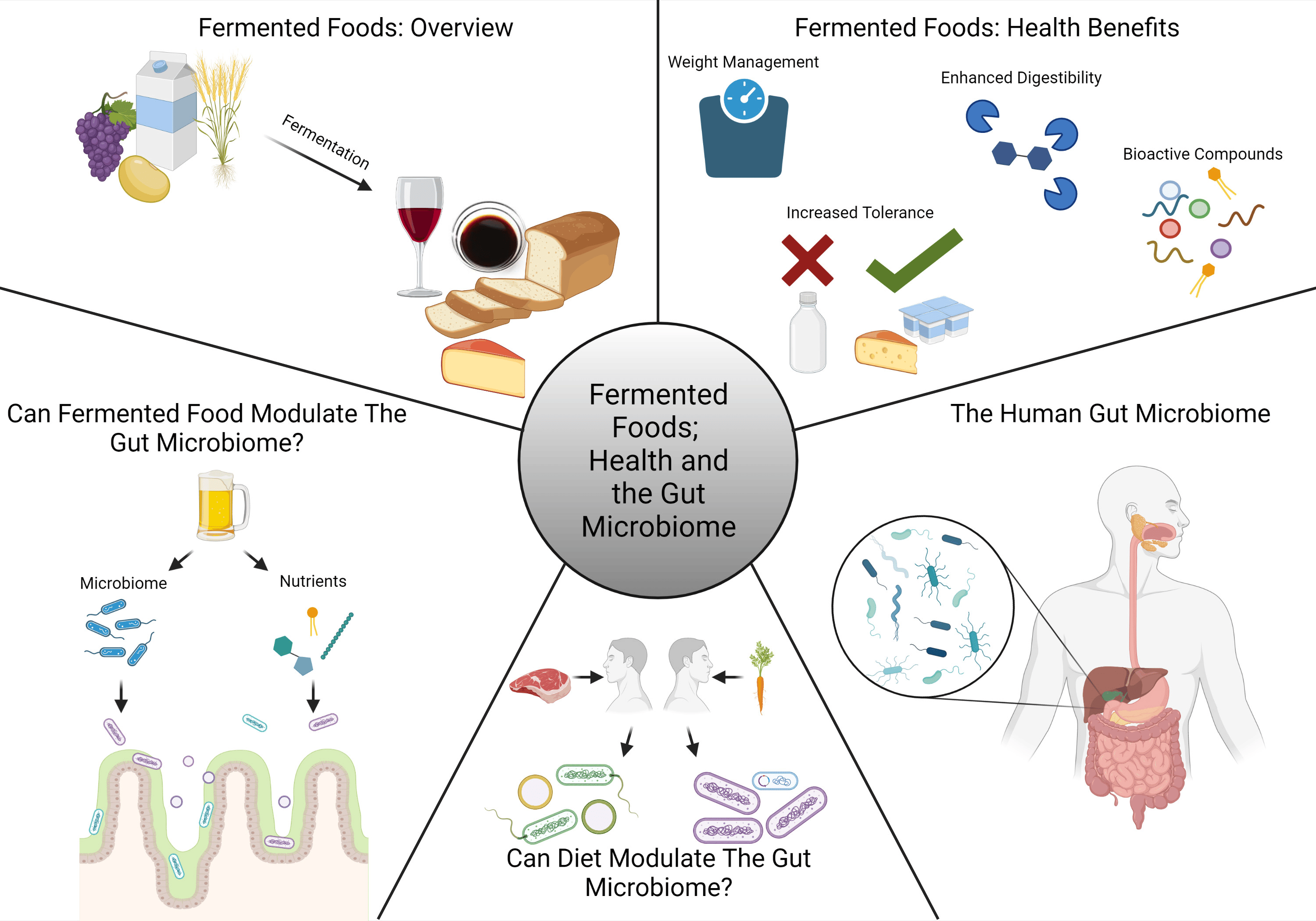
In recent years, the importance of gut health has come into sharp focus, with scientists and health enthusiasts alike recognizing the crucial role the digestive system plays in overall wellness. Central to this conversation is the growing interest in fermented foods, which are rich in probiotics—live microorganisms that provide health benefits when consumed in adequate amounts. This article explores how fermented foods impact gut health, the science behind fermentation, and how to include these foods in your diet for optimal digestive wellness.
What Are Fermented Foods?
Fermentation is a natural metabolic process in which microorganisms such as bacteria, yeast, or fungi convert carbohydrates (like sugars and starches) into alcohol or acids. These byproducts act as natural preservatives and give fermented foods their distinct tangy flavor and extended shelf life.
Common Fermented Foods Include:
- Dairy-based: Yogurt, kefir
- Vegetable-based: Sauerkraut, kimchi, pickles (naturally fermented)
- Soy-based: Miso, tempeh, natto
- Grain-based: Sourdough bread
- Beverages: Kombucha, traditional kvass
The Gut Microbiome: A Key to Health
The gut microbiome consists of trillions of microorganisms, including bacteria, viruses, fungi, and other microbes that live in the digestive tract. These microbes influence a wide range of bodily functions, including:
- Digestion and nutrient absorption
- Immune function
- Hormone regulation
- Mood and brain health
- Protection against pathogens
Maintaining a balanced and diverse gut microbiome is essential for overall health, and this is where fermented foods come in.
How Fermented Foods Support Gut Health
1. Probiotic Powerhouse
Fermented foods are one of the richest natural sources of probiotics, which help:
- Restore microbial balance: Especially after antibiotic use or illness
- Enhance gut flora diversity: Supporting better digestion and immune defense
- Improve nutrient absorption: By enhancing the breakdown and assimilation of nutrients
2. Improved Digestive Function
Many fermented foods contain enzymes that aid in the digestion of complex foods:
- Lactase production: Fermented dairy like yogurt contains lactase, an enzyme that helps digest lactose, making it more tolerable for people with lactose sensitivity.
- Pre-digestion of nutrients: Fermentation can break down anti-nutrients like phytates in grains and legumes, making minerals like iron and zinc more bioavailable.
3. Reduction of Gastrointestinal Disorders
Regular consumption of fermented foods has been associated with relief from various digestive issues:
- Irritable Bowel Syndrome (IBS): Probiotics from fermented foods may reduce bloating, gas, and abdominal pain.
- Diarrhea and constipation: Certain probiotic strains found in yogurt and kefir help regulate bowel movements and reduce the duration of infectious diarrhea.
4. Enhanced Immune Function
About 70% of the immune system is housed in the gut. A healthy microbiome supported by fermented foods can:
- Improve the gut barrier function
- Regulate inflammatory responses
- Increase the production of antibodies and immune cells
5. Anti-Inflammatory Effects
The metabolites produced during fermentation (like short-chain fatty acids, lactic acid, and bioactive peptides) have been shown to have anti-inflammatory and antioxidant properties that support gut integrity and reduce systemic inflammation.
Scientific Evidence Supporting Fermented Foods
- A 2021 study published in Cell demonstrated that participants who consumed a diet rich in fermented foods experienced an increase in microbiome diversity and a reduction in markers of inflammation.
- The American Journal of Clinical Nutrition has documented that probiotic-rich foods like yogurt and kefir improve gut health and may aid in preventing gastrointestinal infections and inflammatory bowel diseases.
Choosing and Incorporating Fermented Foods
1. Look for Live Cultures
When buying fermented products, check the label for phrases like “contains live and active cultures.” Pasteurized or heat-treated fermented foods may not contain viable probiotics.
2. Start Slowly
Introducing fermented foods gradually can help avoid digestive upset, especially for those with sensitive stomachs.
3. Make Them at Home
Homemade fermentation (e.g., kimchi, sauerkraut, or kombucha) is simple and often more potent in probiotics than store-bought versions.
4. Variety Is Key
Rotate different types of fermented foods to ensure you receive a wide spectrum of beneficial microbes.
Precautions and Considerations
- Not All Fermented Foods Are Equal: Some commercially produced versions may lack live cultures or contain added sugars and preservatives.
- Salt and Histamine Sensitivity: Fermented vegetables can be high in salt, and some fermented foods may trigger histamine reactions in sensitive individuals.
- Immunocompromised Individuals: Consult a healthcare provider before adding large amounts of live-culture foods to your diet, as the introduction of new bacteria may pose risks.
Conclusion
Fermented foods offer a natural and effective way to support gut health and overall wellness. Their rich probiotic content, digestive benefits, and ability to modulate the immune system make them a valuable component of a balanced diet. By incorporating a variety of fermented foods regularly and mindfully, individuals can foster a diverse and resilient gut microbiome—paving the way for improved digestion, reduced inflammation, and enhanced health outcomes.


No comments:
Post a Comment